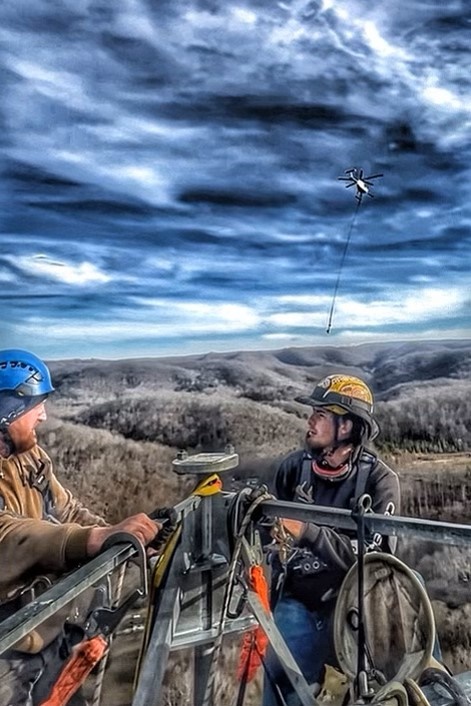On workforce challenges, Cox said, “Our company, like many others in the utility industry, is searching for highly motivated individuals who don’t mind working outside in the elements all year round. Similar to an electric utility provider, wireless infrastructure is looked at the same way. When a cell site is down, the cellular providers see it as an outage that could cost them customers. Our hours are long (12–16-hour days) when we’re trying to get a cell site back on air.”
He added that a specific challenge to the telecommunications industry is finding individuals who are comfortable working at heights of 200 feet-plus all day long. “Also, the inordinate cost of training to get these individuals the necessary certifications to be able to work on cell sites for vendors is very expensive,” said Cox. “Base certifications and a climbing kit for one Tower Technician is approximately $3,000.”
Cox said there are great things happening in the broadband space throughout West Virginia right now, but he believes more could be done on the city and county level as well as in the business metro space. “The barriers to public and private investments in rural areas — where terrain is a problem and there are low numbers of potential customers — continue to stonewall progress,” said Cox.
“I would like to see counties or metro areas — Beckley, Princeton and Summersville for example — look to upgrade their own infrastructure while also creating jobs (maintenance crews, network operating centers, call centers, etc.), “added Cox. He said Chattanooga, Tennessee built their own network and has recently been cited as a top location for business and remote work.
“From the cities, fiber networks could be extended out to the more and more rural areas that would not be possible on their own merit,” said Cox. “The state could also look to partner with some of the best providers of WISP networks (Wireless Internet Service Providers) with some of the federal funding being used to establish fiber backbone throughout the mountains of West Virginia.”
The WV Hive is the entrepreneurship program of the New River Gorge Regional Development Authority (NRGRDA) and the administrator of the Country Roads Angel Network. Its 13-county service area includes Raleigh, Fayette, Summers, Nicholas, Webster, Greenbrier, Pocahontas, Monroe, Mercer, McDowell, Wyoming, Logan, and Mingo counties. More information about the WV Hive can be found at https://wvhive.com/.
CRAN is made up of accredited investors from across the country who in large part are native West Virginians looking to showcase the talent offered in their home state. More information about CRAN can be found at https://wvcran.com/.








